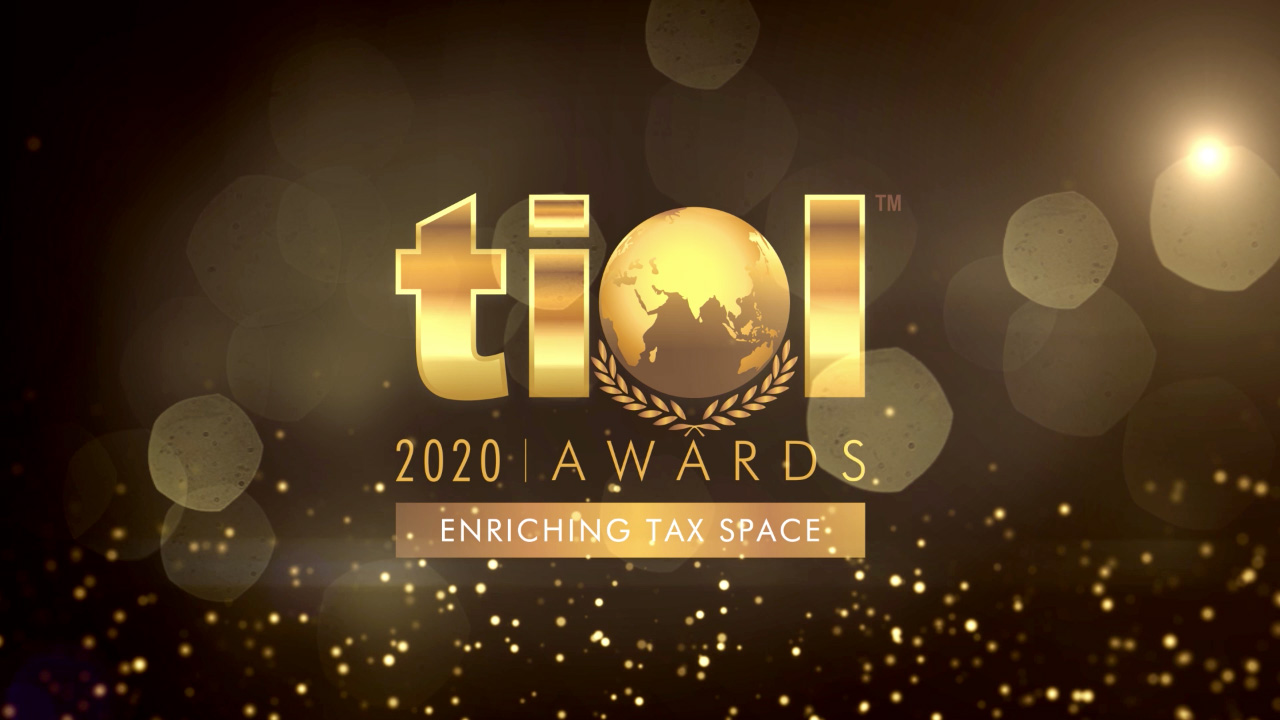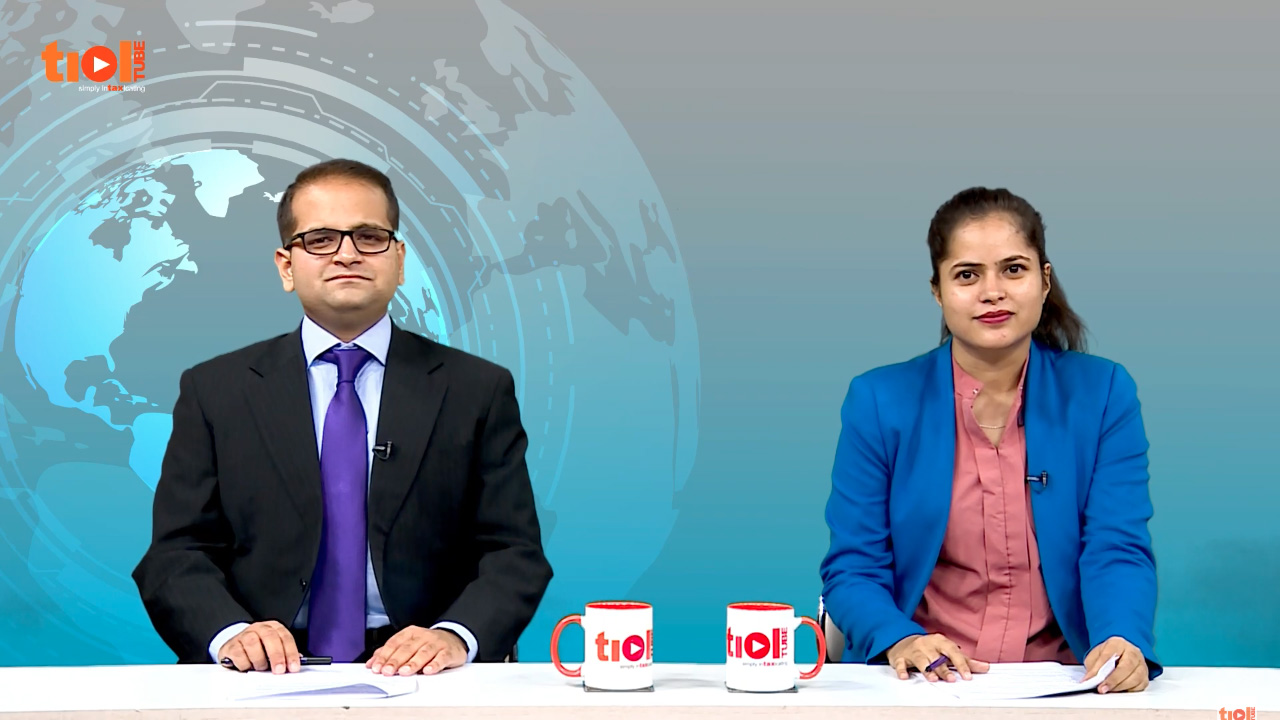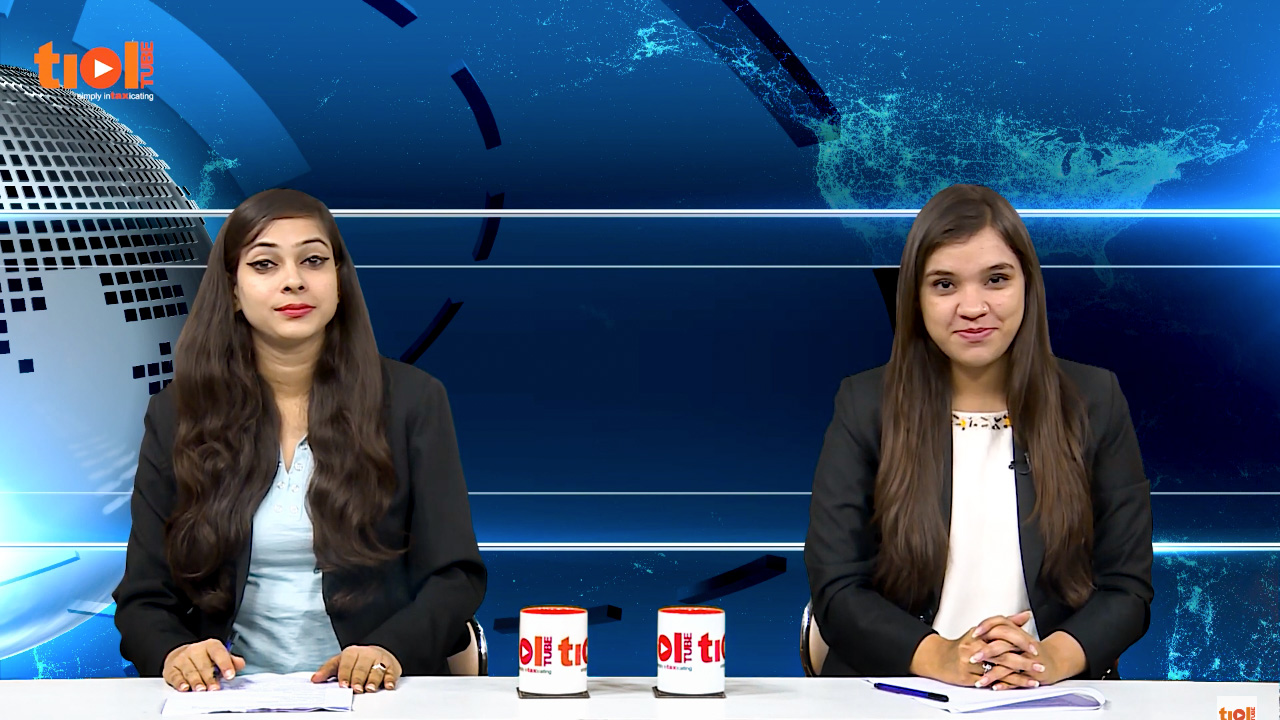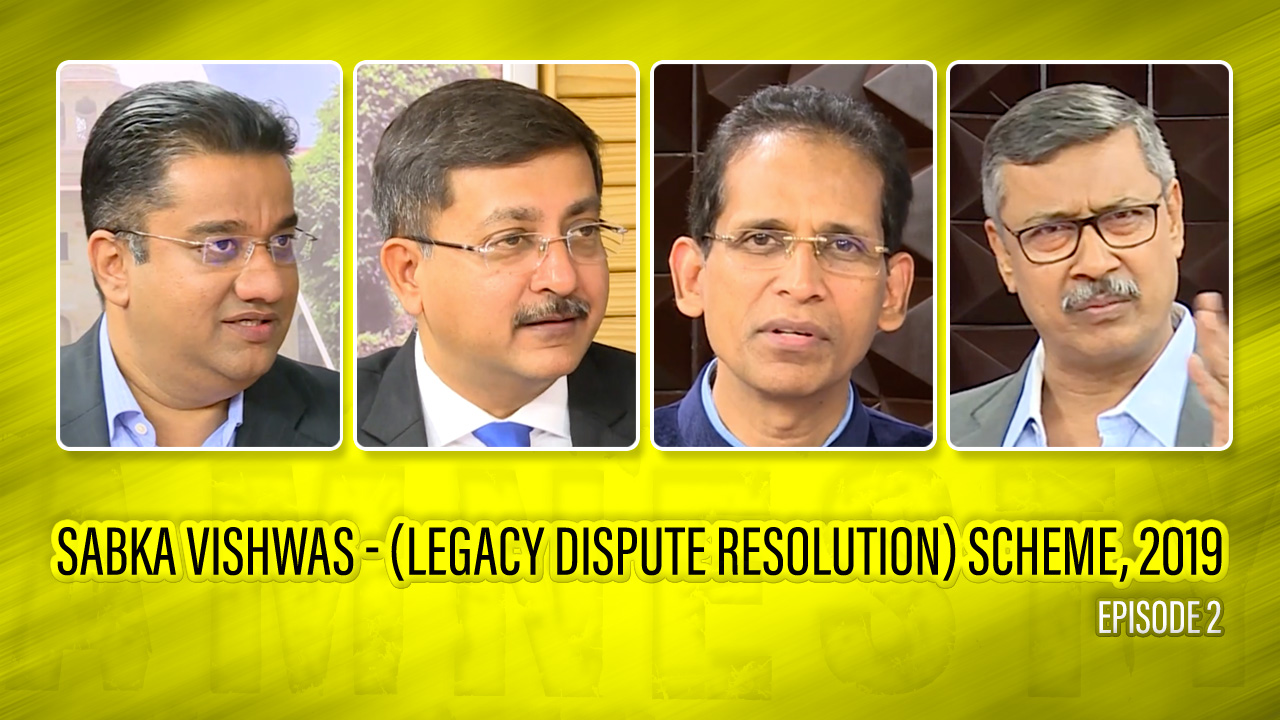SERVICE TAX
2019-TIOL-3377-CESTAT-MUM
Jardine Lloyd Thompson India Pvt Ltd Vs CCGST
ST - The issue involved is whether the appellant, a SEZ unit, is entitled for refund of service tax paid by them on input services used for authorised operations.
HELD: In view of the decision of the Tribunal - 2019-TIOL-2962-CESTAT-MUM in appellant's own case, the issue involved in the instant appeals is no more res integra and is covered in favour of the appellant - no reason found not to follow the same and, accordingly, the impugned order is set aside and the appeals filed by the appellant are allowed : CESTAT [para 5]
- Appeals allowed : MUMBAI CESTAT
2019-TIOL-3376-CESTAT-ALL
Raj Kumar Mishra Vs Commissioner of CGST & CE
ST - On the basis of information received from Income Tax Department for the Financial Year 2012-13, it was noticed that the appellant was paid an amount of Rs.4.30 crore and, therefore, an inquiry was initiated against the appellant - it appeared to Revenue that appellants were providing 'supply of tangible goods' service - therefore, SCN was issued to the appellant demanding ST of around Rs.2.42 crore under the category of 'supply of tangible goods' service - demand confirmed, equivalent penalty imposed, other penalties also imposed - appeal before CESTAT.
HELD: It is noted that the Adjudicating Authority has observed in Para 7.5 as follows, "……….. the party is creating confusion and their both versions are far away from the truth. Further, The party has not contradicted the allegation in respect 'Supply of Tangible Goods' instead they have tried to establish that they are not liable to pay Service Tax under GTA service which is not a matter of dispute in the case. They had also said that the service receiver was discharging service tax liability on 100% value under notification no.30/2012-ST dated 20.06.2012. However, they failed to provide any corroborative evidences to support their claim." - in view of the above, the Bench is of the opinion that the matter needs to be remanded to Original Authority with directions to Original Authority to give appellant an opportunity to present their case along with all admissible documents - the appellants are directed to co-operate with the Adjudicating Authority - the impugned order is set aside and matter is remanded to Original Authority for re-adjudication: CESTAT [para 5, 6, 7]
- Matter remanded : ALLAHABAD CESTAT
2019-TIOL-3375-CESTAT-AHM
J H Kathawala Vs CCE
ST - Appellant is engaged in providing rent a cab service - Revenue has compared their balance sheet income with the value reported in the ST-3 returns and demanded duty on difference - appeal to CESTAT.
HELD: Appellants have not given any legal backing to the claim that the cars provided by them to other operators cannot be treated as rent a cab service provided by them to other operators - in view of the clarification of CBEC vide Circular F. No.B-43/7/97/TRU, dated 11.7.1997, it is not open to Revenue to demand ST in a situation where another rent a cab operator has paid ST - the appellant have produced certificates from other tour operators who have used their vehicles - these certificates cannot replace the evidence - in view of the above, it is found that it would be proper if the impugned order is set aside and matter is remanded to examine the case in the light of said CBEC Circular - the appellants are free to produce the necessary evidence in support of their claim that the service recipient has discharged the ST liability for the service provided to their clients - since the ST is to be levied on the receipt basis, the amount of Revenue recorded for the balance sheet, but not received by the appellant during said period, would not be leviable to ST - moreover, the appellants have claimed benefit of notification 09/2004-ST dated 9.7.2004 - the benefit claimed under the said notification will also need to be considered by the original Adjudicating Authority - the appeal is allowed by way of remand to original adjudicating authority to pass fresh orders keeping above observations in mind : CESTAT [para 4, 4.1, 4.2]
- Matter remanded : AHMEDABAD CESTAT
2019-TIOL-3374-CESTAT-BANG
Sasken Technologies Ltd Vs CCT
ST - Appellant before CESTAT against the rejection of cenvat credit on the three services of 'Group Medical Insurance', 'Catering' and 'Transportation of Employees'.
HELD: As far as Group Medical Insurance is concerned, this Tribunal in the case of Bharat Fritz Werner Ltd. vide Final Order No. 20450/2019 dated 31.5.2019, has held that cenvat credit is not permissible under the Group Medical Insurance Service - this Tribunal has relied upon the decision of the Larger Bench in the case of Wipro Ltd. - 2018-TIOL-3256-CESTAT-BANG-LB and then come to the conclusion that the impugned service falls under the exclusion clause as provided in clause (c) of rule 2(l) of Cenvat Credit Rules, 2004 [CCR] - therefore, by following the ratio of the said decision in the case of Bharat Fritz Werner Ltd., the appellants are not entitled to cenvat credit of ST paid on Group Medical Insurance Service - as far as Catering is concerned, the Bench relies upon the Larger Bench decision of the Tribunal in the case of Wipro Ltd., wherein the Tribunal after considering the exclusion clause provided in clause (c) w.e.f. 1.4.2011 has held that Outdoor Catering Service is not eligible for input service credit post amendment dated 1.4.2011 - therefore, the Commissioner has rightly denied the credit on Catering Service - as far as cenvat credit on Transportation of Employees is concerned, it is found that this falls under the definition of 'input service' as it is directly related to the productivity of the employees working with the appellant and this facility is only from the factory to the residence of the employees and back which falls in the definition of 'input service' and the exclusion clause is not applicable as far as this service is concerned - therefore, by relying upon the ratio of the decision in the case of Reliance Industries, the appellants are entitled to cenvat credit of ST on this service - further, it is found that the issue involved in the present case relates to interpretation of the definition of 'input service' and, therefore, extended period cannot be invoked and penalties cannot be imposed - therefore, the demand for the normal period of one year is confirmed and the invocation of extended period is held as not tenable in the present case and the penalties imposed under rule 15 (2) of the CCR read with section 11AC(1)(c) of the CEA are also set aside, and the matter is remanded back to the original authority to re-quantify the demand for the normal period with regard to the impugned services which the appellant is liable to pay - appeal is partly allowed : CESTAT [para 6]
- Appeal partly allowed : BANGALORE CESTAT
2019-TIOL-3373-CESTAT-KOL
CCE & ST Vs Sanjay Gas Distributors Pvt Ltd
ST - Revenue before CESTAT against impugned order - the amount involved in the present cases is below the monetary limit of Rs.20 lakhs which has been notified vide Board's Instruction being F.No. 390/Misc./116/2017-JC dated 11.7.2018 - accordingly, the appeal is dismissed under litigation policy: CESTAT [para 4]
- Appeal dismissed : KOLKATA CESTAT
CENTRAL EXCISE
2019-TIOL-3372-CESTAT-DEL
Jagannath Polymers Pvt Ltd Vs ACCE
CX - Appellant herein is engaged in the manufacture of poly bags - it was observed during the course of audit that the appellant has wrongly availed cenvat credit of Rs.39,117/- during the period w.e.f. October, 2010 to March, 2014 on outward freight upto the place of buyer - a SCN dated 4.3.2015 was issued proposing the recovery of the said amount and imposition of penalty and interest - the original adjudicating authority had confirmed the said proposal - the appeal thereof was also rejected, therefore, assessee before CESTAT.
HELD: Apparently and admittedly, the cenvat credit has been availed on the ST paid for the services as that of transportation which are used beyond the place of removal - the Apex Court in Ultra Tech Cement - 2018-TIOL-42-SC-CX has clarified that the word 'up to' signifies the terminating point, putting an end to the transport journey - prior to the amendment in the definition of 'input service' in the year 2008, the word 'from' instead of the word 'up to' was used, which used to include the services even beyond the place of removal - that situation stands extinct since the amendment which came into effect from 1.3.2008 - in view thereof, the amount paid on the freight for outward transportation of goods from the place of removal do not anymore qualify to be called as input service - accordingly, the amount in question is not eligible to be availed for credit in view of rule 3(1) of Cenvat Credit Rules, 2004 - as a result, no infirmity found in the Order under challenge - same is, accordingly, upheld and the appeal stands dismissed : CESTAT [para 5]
- Appeal dismissed : DELHI CESTAT
2019-TIOL-3371-CESTAT-ALL
Pr. CC. CE & ST Vs J Sons And Company Ltd
CX - Audit found that during the period 2005-06 respondent assessee were also clearing Fittings and Points & Crossings [PCs], on which no duty of CE was being paid by them - SCN dated 5.5.2010 was issued raising demand of Rs.2.73 crore for the period 2005-06 to 2008-09 - demand confirmed - on remand by Tribunal, vide impugned order, the adjudicating authority held the demand to be barred by limitation and vacated the SCN - Revenue is in appeal before CESTAT.
HELD: Main ground for dropping the demand by the Adjudicating Authority is that there are no goods called Fitting and PCs - the same refer to the fabrications done in the rail tracks by various types of items, which facilitate the smooth movement of the rails - it is noted that subsequent to the demand order, the report of the Superintendent, CE, Meerut, obtained by the adjudicating authority is to the clear effect that the respondents had purchased the various items like Flats, Bars, Rounds, Squares, Shapes and Sections, Fish Plates, Sheets, Channels, Angles, Nuts and Bolts, Washers, Clips etc. of different shape and size during the period in question, which stands reflected in their books of accounts - as per the assessee the said goods stand further transferred to railways under their delivery challans, accompanying the invoices which refer to the said items collectively as fittings - the above evidence of fact duly supported by the letter of the Superintendent has not been rebutted by the Revenue - admittedly, duty cannot be demanded on the items not manufactured by the assessee and in the absence of any facts indicating that Fittings as also PCs are items or refer to any goods, mere mention of the same in the invoices, while clearing the various items collectively meant for such fittings etc., the demand cannot be upheld on the same - further, the Revenue's objection that the Tribunal only remanded the matter for supply of the report of the Assistant Commissioner, in which case it was not open to the adjudicating Authority to go to the merits of the case cannot be appreciated inasmuch as there is no debarring in the Tribunal's order to consider the merits of the case and to re-decide the same - it is only that on the first principle of violation of principles of natural justice that the matter was remanded - it cannot be held to be a restricted remand and the Bench fully agrees with the respondents that the Adjudicating Authority was within his rights to deal with the merits of the case after supplying the report of the Assistant Commissioner - as such, the Revenue has no case on merits - even on the ground of invocation of extended period, the Revenue has a weak case - the entire case has been made out based upon the objections raised by the audit team which in turn was based upon the scrutiny of the records maintained by the assessee, in the ordinary course of their business - as such, it is beyond doubt that the respondent was reflecting each and every transaction in their books of accounts, in which case no mala fide can be attributed to them so as to invoke the longer period - Revenue has not advanced any reasoning or evidence to show the respondent's mala fide intent to evade payment of duty - the Adjudicating Authority has rightly held the demand to be barred by limitation - in view of the foregoing, no merits found in the Revenue's appeal, the same is accordingly rejected : CESTAT [para 7, 8, 9, 10]
- Appeal rejected : ALLAHABAD CESTAT
2019-TIOL-3370-CESTAT-CHD
Paramount Communication Ltd Vs CCE & ST
CX - Whether waste & scrap arising out during the manufacture of wire & cables is excisable or not?
HELD: Appellant is manufacturing enameled wires and cables and during the course of manufacturing, such waste & scrap arise - therefore, in terms of the decision in the appellant's own case vide order dated 26.10.2010, the waste & scrap of wire & cables is not a manufactured product, accordingly, waste and scrap are not goods and are not dutiable - it is further found that in the decision of Bombay High Court in the case of Hindalco Industries Ltd. - 2014-TIOL-2266-HC-MUM-CX , the waste and scrap, arising during the course of manufacture of final product, is held to be not dutiable - moreover, the same view has been taken by the Apex Court in the case of DSCL Sugar Ltd. - 2015-TIOL-240-SC-CX - therefore, on the waste & scrap, arising during the course of manufacture of enameled wires and cables, the appellant is not liable to pay the duty - in the above terms, the impugned order is set aside and the appeal allowed : CESTAT [para 7, 8]
- Appeal allowed : CHANDIGARH CESTAT
CUSTOMS
2019-TIOL-2634-HC-DEL-CUS
CC Vs Suraj Prakash Dua
Cus - All these appeals have been filed with applications to seek condonation of delay which is in the range of around 486 days - The aspect of condonation of delay has to be viewed in the light of explanation furnished by appellant, as also in the context of prejudice which would be caused to the Respondent, in case the delay is condoned - Orders of similar nature passed by Tribunal were not accepted by department and several other appeals were preferred in year 2018 itself - The same have been allowed by this Court as early as on 03.08.2018 - The department has been preferring such like appeals from time to time, and this Court has consistently been setting aside the orders passed by Tribunal with the direction to independently apply its mind to the question of jurisdiction, and to decide the appeals on merit, including the aspect of imposition of penalty - The effect of the orders passed by this Court in earlier appeals, setting aside similar impugned orders is that rather than the Adjudicating Authority, it is the Tribunal itself that would now undertake the required exercise - Pertinently, it were the appeals of the assessees/Respondents on which the impugned order had been passed - The effect of the impugned order is to await the decision of Supreme Court in Mangli Impex Limited and then the case is to be decided on merits - This would delay the proceedings, and the same would neither be in the interest of Revenue, nor in the interest of the assessee - The decision in Deo Kumar Singh is not attracted - Therefore the objection of Respondents to the condonation of delay are rejected, and accordingly, allow the applications seeking condonation of delay and condone the same: HC
- Appeals allowed: DELHI HIGH COURT
2019-TIOL-3369-CESTAT-BANG
Devshi Bhanji Khona Vs CC
Cus - The appellant, engaged in the activity of oil and gas exploration and exploitation, entered into a projection sharing contract for undertaking petroleum mining operations - As per the contract, the appellant would be exempted from payment of Customs duty on goods imported for undertaking petroleum operations - The appellant purchased from Egypt, a Jack Up rig, for undertaking such operations & such rig was carried by a dry dock vessel - An Anchor Handler Cum Supply Vessel was also brought to Cochin for towing the rig from the port to the shipyard - As the rig was not in an operable state, it was necessary that repairs be undertaken on it before its deployment for petroleum operations - Hence the rig was brought to the Cochin outer achorage for repairs at the Customs bonded shipyard of Cochin Shipyard Ltd - Thereafter, another Anchor Handler Cum Supply Vessel was brought to India to tow and push the rig for repairs to the Cochin Shipyard - The same was brought it as a supply vessel designed to carry materials and men to and from the rig once the rig is deployed for petroleum operations - Request for entry inwards was granted - IGM was filed in respect of the various vessels - Pursuant to port clearance, the rig was towed to Cochin Ship Yard for repairs which went on for almost a year - Thereafter, the appellant informed the Customs Department about deployment of the rig for petroleum operations - Hence the appellant sought amendment to the IGMs filed - Such amendment was granted and a BoE was filed for the rig - Essentiality certificate issued by the Director General of Hydrocarbon was also presented - The appellant claimed exemption as per Notfn No 12/2012-Cus which exempts duty on goods imported for petroleum operations - BoE was also filed for the supply vessel and essentiality certificate was presented - the Revenue extended the exemption after examining various aspects - Subsequent to clearance of the rig, the Revenue conducted an investigation and issued SCN alleging there to be import for home consumption of the rig and that the appellant was liable to pay Customs duty at that point in time itself - The benefit under Notfn No 12/2012 was also denied - It was alleged that BoE were not filed for the relevant vessels and that the rate of duty be determined u/s 15(1)(c) of the Customs Act - Duty demand was raised on the rig., the tug, the stores and the consumables - On adjudication, such duty demand was confirmed in respect of the same, with the rig and the tug vessel being confiscated with option of redemption fine - Penalty was imposed - A separate amount and bank guarantee were appropriated - Hence the present appeals.
HELD - Though there is no serious breach of provisions in non-filing of BoE, the same cannot be said to be true in respect of the cargo declaration in the IGM - The purpose under the scheme of the Customs Act and regulations made thereunder is to declare the goods imported in a proper manner - This is not to be taken as casual information given by filling up forms - his would certainly give necessary information/inputs to the customs authorities as to have information as to which was the cargo imported by which vessel and would help in ensuring that no dutiable goods imported escape payment of duty and also to ensure that no prohibited goods are imported in contravention of the law - Hence the act of non-declaration of the rig as goods/cargo is mis-declaration by the appellants - The provisions of Sections 30 & 32 were contravened and for this act of misdeclaration or non-declaration, the goods were rendered liable for confiscation u/s 111(f), 111(g) and 111(h) - Moreover, it is seen from the facts that the appellant took the plea of confusion in Customs practices itself and that the appellant regularly kept the Department notified of all the activities and that the officers boarded the vessels and supervised the supply of ship stores and spares - Hence the redemption fine imposed merits being reduced: CESTAT
HELD - Exemption under Notfn No 12/2012-Cus - It is not the Revenue's case that the vessels were put to use for petroleum operations without the essentiality certificate - The Revenue contended that the goods were imported for Petroleum operations and as such their declaration in the IGM were incorrect - On completion of repairs, the appellant filed a BoE for clearance of the vessel and to facilitate filing of BoE, amendment to the IGM was also requested and was granted - Only after the goods obtained the essentiality certificate, were they put to the intended use - Hence the exemption is correctly availed - It is trite law that the production of Essentiality Certificate is a mere procedural formality when there is no doubt as to the intended purpose of the goods: CESTAT
HELD - Confiscation of vessels and rig - Though technically in terms of Section 2(39) of the Customs Act, all acts which render the goods liable for confiscation are regarded to be acts of smuggling, the common understanding of the words is also required to be seen - It is not the Revenue's case that the rig and the supply vessel were concealed in any manner so as to escape duty liability and other penal actions - It is on record that the appellant declared every activity in relation to the rig and the supply vessel - The crux of the allegation is that the rig and supply vessel were not mentioned as goods - Equating the instant case where incorrect or inappropriate declarations were given with cases where goods were imported through concealment, is stretching things too far - The Customs Department was put to notice of all developments from time to time and the Department did not guide the appellant appropriately - The present case at worst is one of improper import for which some responsibility is attributed to the Department - Hence the filing of BoE and availing of exemption under Notfn No 12/2012-Cus is quite acceptable: CESTAT
HELD - Classification of tug - The Tug is a supply vessel a few additional features to tow, it is correctly classifiable under CTH 8901 - Hence the exemption under Notfn No 12/2012-Cus is available on it: CESTAT
HELD - Penalties - As the benefit under Notfn No 12/2012-Cus is already available to the appellant on the rig and the Anchor Handler Cum Supply Vessel, no duty is payable in this regard - Penalty imposed u/s 114A is set aside - There was mis-declaration on part of the appellant and the shipping agent as far as the nature of the rig and the AHTS vessel is concerned and hence the same are liable for confiscation - But as the issue is one of understanding the existing practices in the Customs House and that the agents had nothing to gain personally or professionally from such mis-declaration, the penalties imposed merit being reduced - The penalty imposed on the captain of the vessels merits being reduced as reasons existed for him to be unaware of the procedures to be followed in such cases and that the ignorance of CBIC Circular 58/97 dated 06-11-1997 is understandable - Appeals be disposed off in such terms: CESTAT
- Appeals partly allowed : BANGALORE CESTAT








